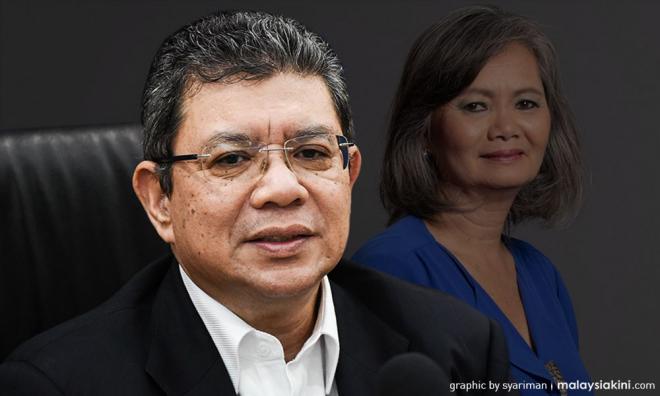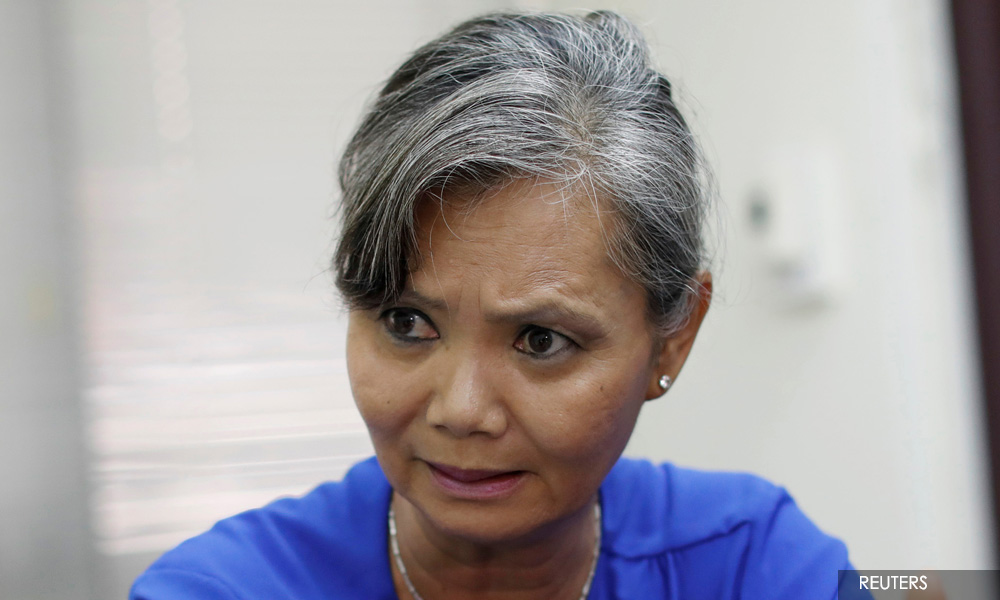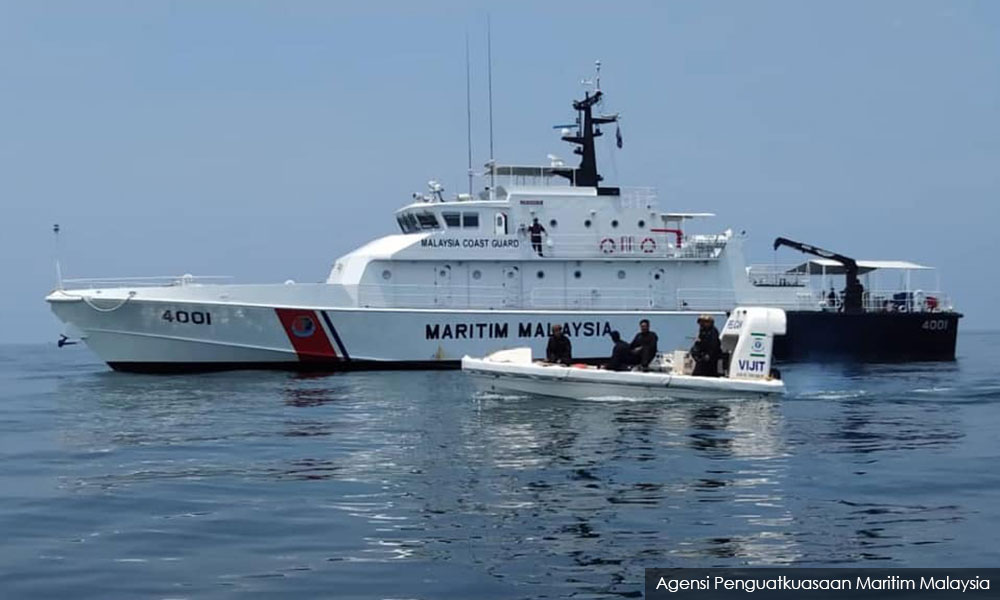
Malaysia had a good reason to deny Cambodia's request to send back its exiled opposition leader Mu Sochua, said Foreign Minister Saifuddin Abdullah.
He said opposition leaders entering Malaysia did not use Cambodia's international passports.
"We have received a letter from Cambodia with a list of Cambodian politicians, whom they have asked us to send back to Cambodia.
"But we looked at the case, for example if someone came and he (or she) is a US or French citizen.
"She (opposition leader) is not travelling on a Cambodian passport, so what can we do," he said when met in Kuala Lumpur last night.
On Thursday, Prime Minister Dr Mahathir Mohamad said Malaysia was trying to find another country willing to accept exiled Cambodian opposition leaders, detained by authorities at the Kuala Lumpur International Airport (KLIA).
Mahathir said the Malaysian government did not want to interfere in other country's business.

Mu, 65, (above) is the vice president of the Cambodian National Rescue Party (CNRP) which nearly defeated the Cambodian People's Party of long-time ruler Hun Sen in the 2013 general elections.
She was reportedly detained by the Immigration Department upon arriving at KLIA using a US passport.
Saifuddin said the government would, however, monitor the opposition leaders to ensure that they did not make Malaysia a base from which to launch political movements.
He said Malaysia had also informed the Cambodian embassy in the country about the decision not to send Sochua back.
Meanwhile, in an earlier talk, Saifuddin said the government would enhance maritime surveillance in the waters of the South China Sea.

He said the ministry needed a significant allocation to improve its control of the country's maritime borders, which was recommended by a study conducted by Wisma Putra.
On a separate issue, Saifuddin said Malaysia would submit a proposal to reform the veto system adopted by the United Nations security council.
He said the proposal would be tabled in conjunction with the organisation's 75th anniversary next year.
Although recognising it was difficult, Saifuddin said at least the government was trying to make changes to the existing veto system.
"We want to use the spirit of the 75th anniversary to improve the UN.
"I have already started (the campaign) among Asean countries, I will bring it to ASEAN ministers' meetings," he said.
Currently, the UN security council veto power refers to the power of the five permanent members of the council -- the US, Russia, China, Britain and France -- to veto any substantive resolution. - Mkini


No comments:
Post a Comment
Note: Only a member of this blog may post a comment.